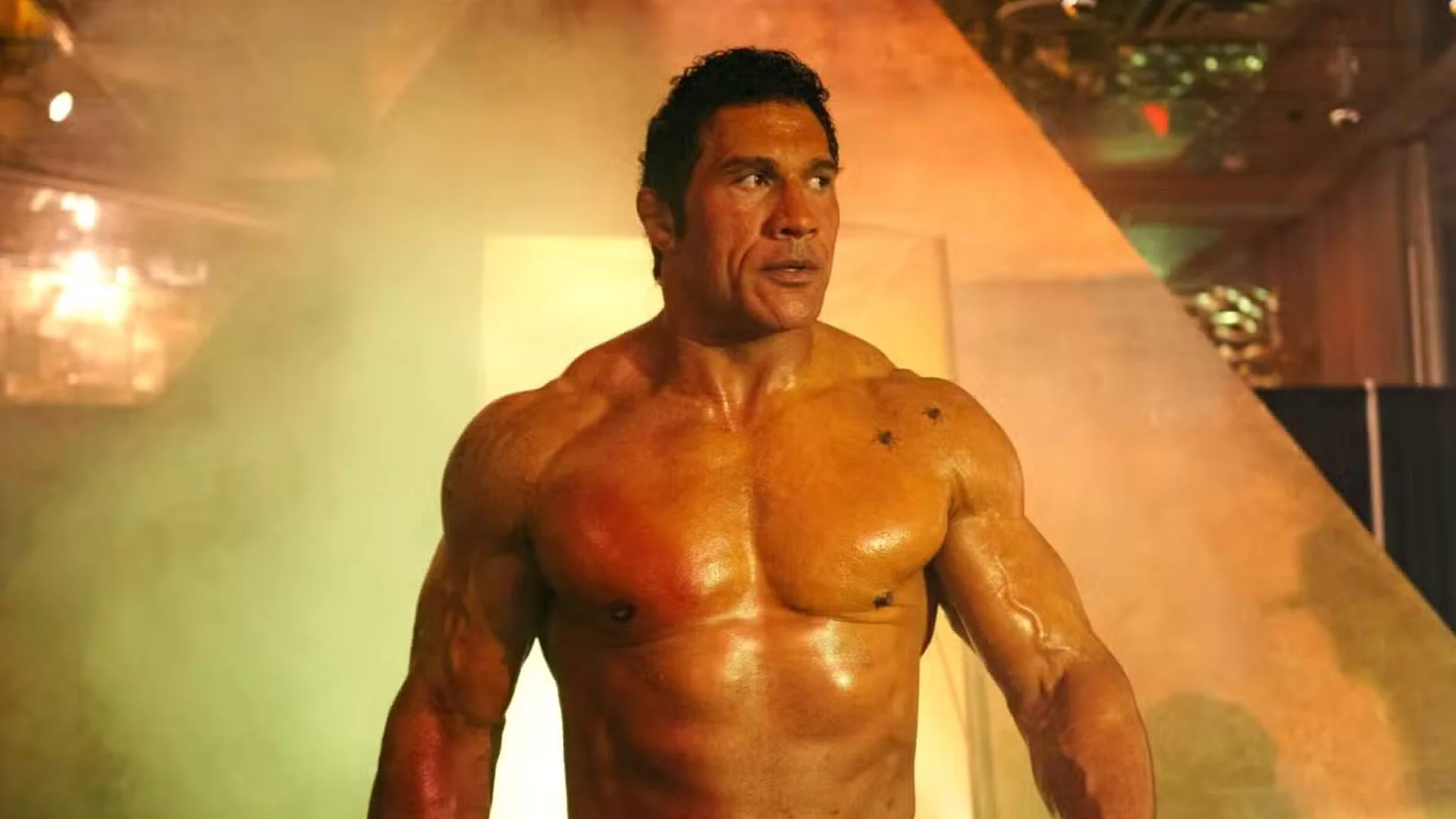Review: THE SMASHING MACHINE Sees Dwayne Johnson Disappear Into His Best Performance Yet
When it comes to Dwayne Johnson, I usually know exactly what I’m getting. In most of his movies, he’s essentially playing some version of himself, it’s always the same character. It works for him, but I’ve been wanting to see him do something different.
I wanted to see Johnson really stretch himself, to step outside his comfort zone and show us something deeper. With The Smashing Machine, we finally got to see Johnson really, truley act, and I was floored by what he delivered.
This film isn’t a blockbuster spectacle or a quippy action-adventure. It’s a heavy, uncompromising character study built entirely around Johnson’s portrayal of UFC legend Mark Kerr, and he disappears into the role.
For the first time in years, I wasn’t watching “The Rock” on screen; I was watching a man broken by addiction, haunted by pressure, and clinging to the fragile hope of redemption. It’s easily the most vulnerable and layered performance Johnson has ever given, and I thought it was award worthy.
The story follows Kerr through the height of his fighting career, where behind every victory looms a darker truth: a crippling dependence on prescription painkillers.
The physical toll of the sport bleeds into his personal life, particularly his volatile relationship with longtime girlfriend Dawn Staples, played with raw conviction by Emily Blunt. The dynamic between Johnson and Blunt is electric in all the worst ways as you’re watching two people who love each other but can’t seem to stop tearing each other apart.
Their arguments are relentless, painful, and at times almost unbearable to watch. And yet, that’s exactly what makes the movie work.
Benny Safdie directs with an unflinching honesty. He doesn’t glamorize Kerr’s victories or soften the blows of his losses, inside the ring or out of it. Instead, Safdie gives us a gritty, textured portrait of a man at war with himself.
There’s a weight to every scene, and a tension that pulls on you over the course of the film. And while the movie is undeniably tough to sit through at times as it’s dark, depressing, suffocating, it’s also hauntingly real.
There are flashes of light within the darkness. The film explores Kerr’s bond with fellow fighter Mark Coleman, and those moments of camaraderie give us a glimpse of what the story could have leaned into even more.
But where The Smashing Machine ultimately shines is in its raw depiction of Kerr’s journeyand the resilience he finds in the wreckage of his life. Johnson dials down his trademark bravado and taps into something much more fragile with quite fear, desperation, and a need for connection.
By the time the film reaches its crushing climax, both Johnson and Blunt unleash some of the best work of their careers. It’s messy and devastating but never overplayed.
And as bleak as it all feels, there’s still a spark of hope, one that keeps the movie from collapsing under its own weight. That little spark makes the journey worth it.
The Smashing Machine is not a feel-good movie. It’s punishing, emotionally draining, and heavy in ways that might turn off anyone expecting a more traditional sports drama.
But if you want to see Johnson truly act, really act, this is the film to watch. Vulnerable, gripping, and unflinching, it’s the most surprising performance of his career, and I hope it’s the first of many roles where he pushes himself like this.
If The Smashing Machine is the start of a new chapter for Johnson, then sign me up.
